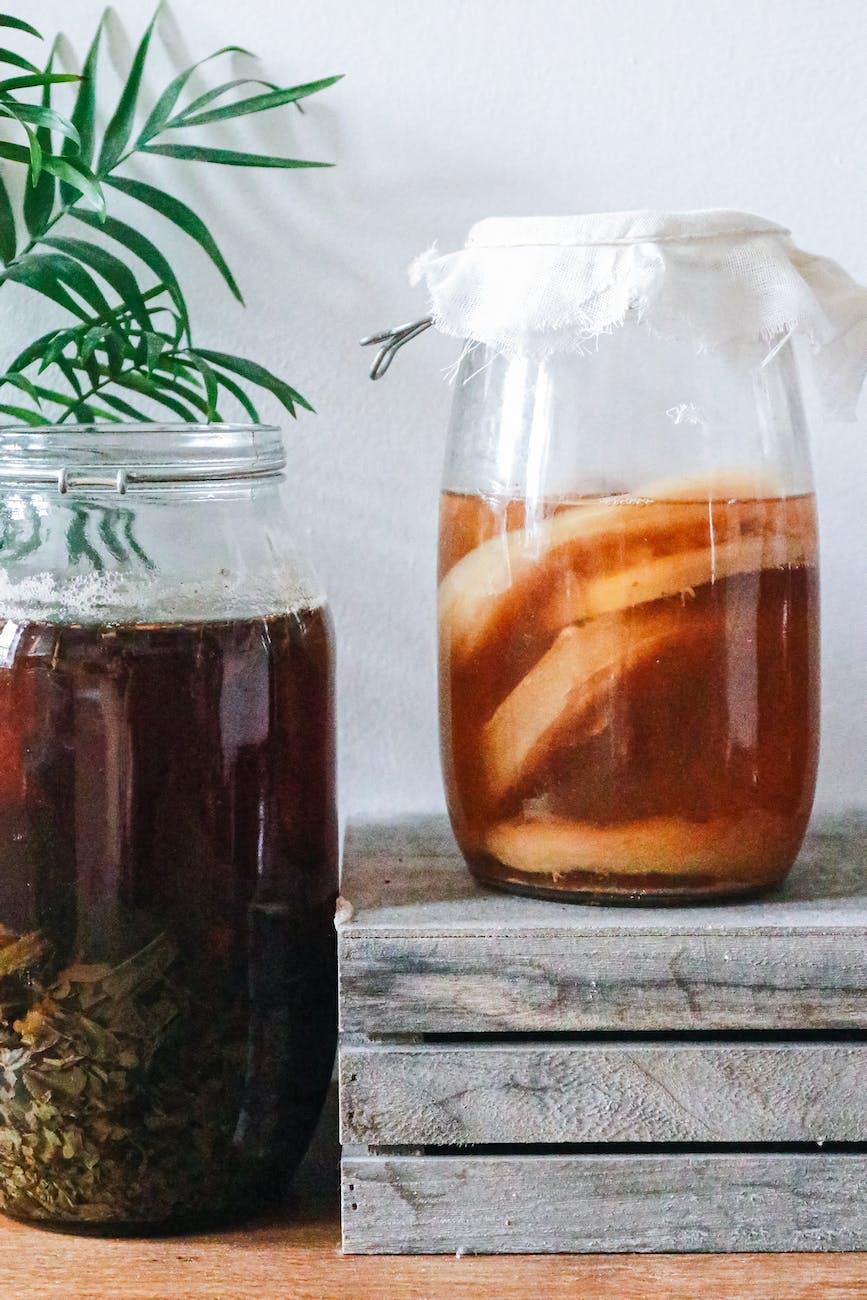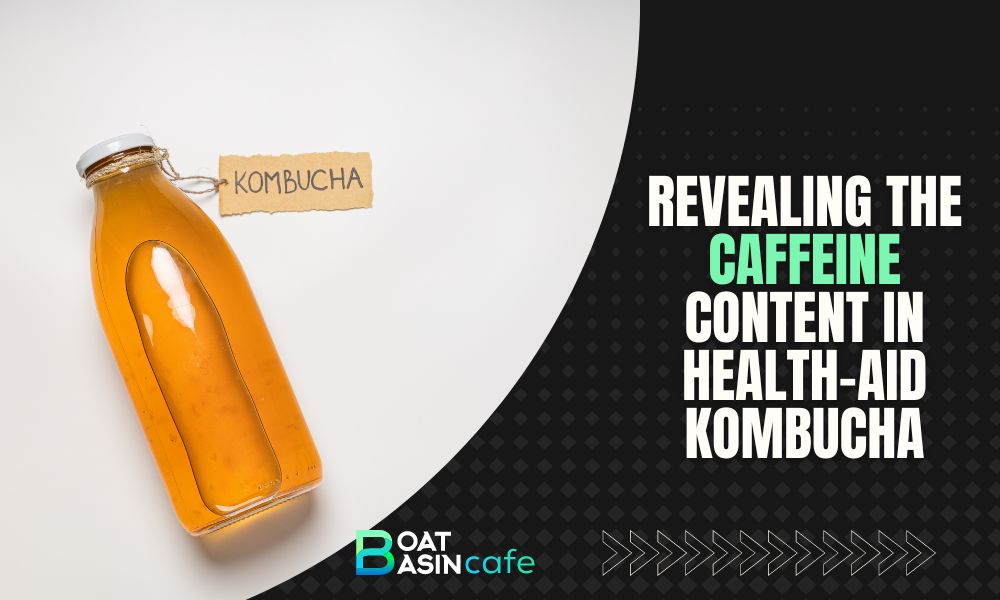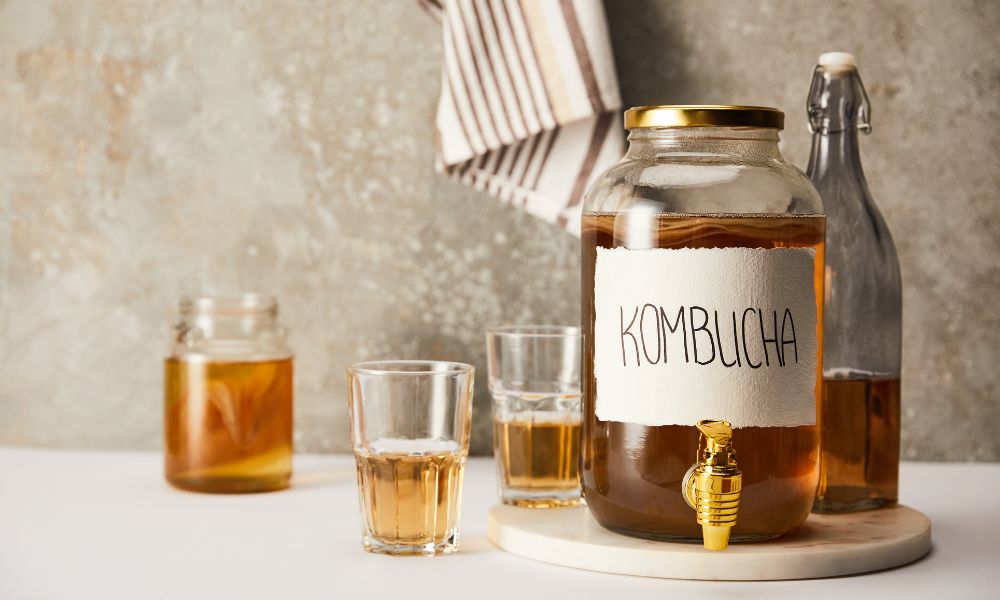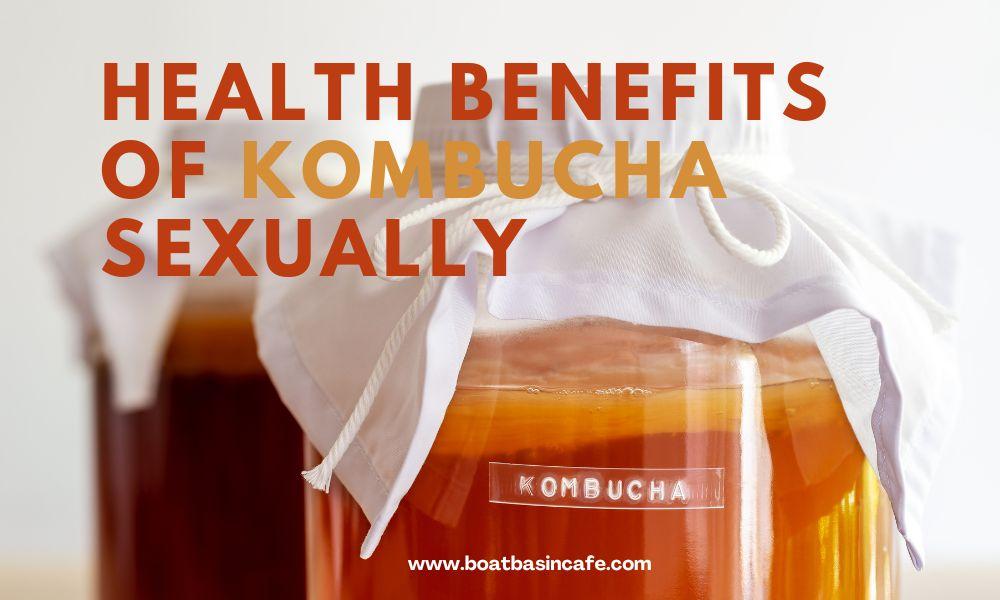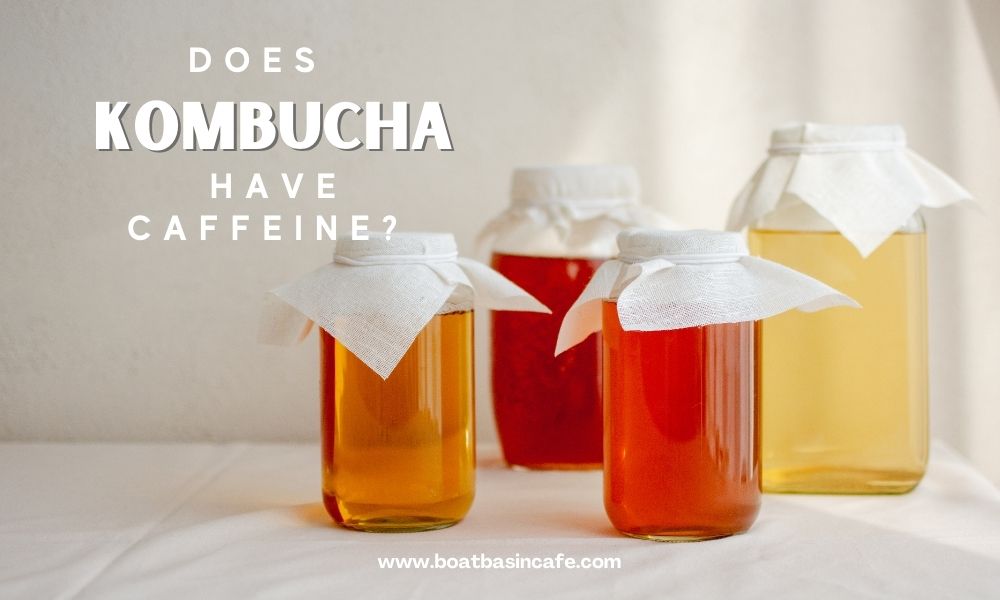Unlock the power of ginger lemon kombucha for a refreshing way to boost digestion, strengthen the immune system, and promote healthy skin. Discover the amazing benefits today! ✨🍋
[adthrive-in-post-video-player video-id=”SP0Y0pPe” upload-date=”2024-01-05T04:31:53.000Z” name=”Ginger Lemon Kombucha Benefits.mp4″ description=”null” player-type=”default” override-embed=”default”]
🌿The allure of ginger lemon kombucha
As a chef and barista, I’ve had the pleasure of working with a wide variety of beverages, but there’s something truly special about ginger lemon kombucha. The tangy and refreshing flavors of lemon combined with the spicy kick of ginger make for a truly invigorating and satisfying drink. What sets ginger lemon kombucha apart is not just its taste, but also its numerous health benefits. In this article, we’ll explore the incredible advantages of ginger, lemon, and kombucha, and how their combination creates a synergistic powerhouse of wellness.
During my time at Boat Basin Cafe, we always had a selection of health-focused beverages on the menu, and kombucha was a staple. I can vividly remember the first time I encountered kombucha. It was a hot summer day, and a friend introduced me to this fizzy, probiotic-rich drink. I was instantly hooked. The unique tang and effervescence captured my taste buds, and I couldn’t help but be intrigued by its reputation for promoting gut health and overall well-being. From that moment on, I knew I had to dive deeper into the world of kombucha and explore its potential as a chef.
🌱The Health Benefits of Ginger

Ginger has been used for centuries for its medicinal properties, and its health benefits are truly remarkable. This aromatic root contains powerful anti-inflammatory compounds that can help alleviate symptoms of arthritis and reduce muscle soreness. Ginger is also known to aid digestion by increasing the production of digestive enzymes and reducing bloating and nausea. Additionally, it has been shown to enhance immune function, improve brain health, and even help with weight management.
At Boat Basin Cafe, we often incorporated ginger into our recipes, whether it was in our homemade ginger tea or ginger-infused sauces. The zesty and warming flavor of ginger added a delightful kick to our dishes and beverages, and our customers loved it. When combined with the probiotics and antioxidants found in kombucha, ginger takes on a whole new level of health-boosting potential.
🍋The Power of Lemon

Lemons are not only a versatile and refreshing citrus fruit but also a nutritional powerhouse. Packed with vitamin C, lemons help boost the immune system and protect against oxidative stress. They also contain compounds called flavonoids, which have been shown to have anti-cancer and anti-inflammatory properties. In addition, lemons are known to support digestion, promote hydration, and improve skin health.
During my time at Boat Basin Cafe, we often used lemons in our beverages to add a burst of freshness. Lemon-infused water, lemonades, and even lemon zest in our cocktails were all popular choices. The bright and tangy flavor of lemons pairs beautifully with the earthy and spicy notes of ginger, creating a harmonious combination that not only tantalizes the taste buds but also provides a plethora of health benefits.
🔮Unleashing the Potential of Kombucha
Kombucha, a fermented tea beverage, has gained immense popularity in recent years, and for good reason. This ancient elixir is rich in probiotics, which are beneficial bacteria that support a healthy gut microbiome. A healthy gut is essential for overall well-being, as it plays a crucial role in digestion, nutrient absorption, and immune function. Kombucha is also a great source of antioxidants, which help protect the body against oxidative stress and reduce inflammation.
During my time at Boat Basin Cafe, we brewed our own kombucha in-house, experimenting with different flavors and combinations. The process of brewing kombucha is fascinating, as it involves fermenting sweetened tea with a symbiotic culture of bacteria and yeast, known as a SCOBY. The result is a slightly effervescent, tangy, and slightly sweet beverage that is not only delicious but also packed with health benefits.
💥 Synergistic Superpowers: Ginger Lemon Kombucha
– Ginger lemon kombucha aids digestion and helps with digestive issues.
– It boosts the immune system and protects against common illnesses.
– It promotes healthy skin, reducing inflammation and protecting against premature aging.
Ginger lemon kombucha is not only a flavorful and refreshing beverage but also a potent digestive aid. Ginger’s anti-inflammatory properties help soothe the digestive system, while lemon supports detoxification and promotes healthy digestion. The probiotics in kombucha further aid in digestion by promoting the growth of beneficial gut bacteria. This combination can help alleviate digestive issues such as bloating, indigestion, and acid reflux.
In addition to its digestive benefits, ginger lemon kombucha is a powerful immune booster. Ginger’s immune-enhancing properties, combined with the vitamin C and antioxidants in lemons, help strengthen the immune system and protect against common illnesses. The probiotics in kombucha also play a role in supporting immune function by modulating the immune response.
Furthermore, ginger lemon kombucha can help promote healthy skin and reduce inflammation. The antioxidants in lemons and kombucha help protect against free radicals, which can damage the skin and accelerate aging. Ginger’s anti-inflammatory compounds can also help reduce redness and irritation, giving you a healthy and radiant complexion.
Make Your Own Ginger Lemon Kombucha
To experience the incredible benefits of ginger lemon kombucha, why not try making your own? Here’s a simple recipe to get you started:
🍹 Ingredients
- 1 cup of kombucha
- 1 tablespoon grated ginger
- Juice of half a lemon
- 1 teaspoon honey (optional, for added sweetness)
👨🏻🍳 Instructions
- In a glass, combine the kombucha, grated ginger, lemon juice, and honey (if using). Stir well to mix.
- Let the mixture sit at room temperature for 24-48 hours to allow the flavors to infuse and the kombucha to become fizzy.
- Once the desired level of fermentation is reached, strain the mixture to remove the ginger and transfer the ginger lemon kombucha to a bottle or jar with a tight-fitting lid.
- Refrigerate the kombucha for a few hours to chill and enjoy!
Experiment with the recipe by adding other ingredients like mint leaves or a dash of cayenne pepper to customize the flavor to your liking.
Conclusion
In conclusion, ginger lemon kombucha is not only a delicious and refreshing beverage but also a powerhouse of health benefits. Whether you’re looking to support digestion, boost your immune system, or improve your skin health, this fizzy elixir has got you covered. So why not give it a try and experience the amazing benefits of ginger lemon kombucha for yourself?
For more information on kombucha and its caffeine content, check out this article from Health Aid Kombucha Caffeine Facts.
FAQs
What is kombucha tea and its health benefits?
Kombucha tea is a fermented beverage made from tea, sugar, and a symbiotic culture of bacteria and yeast (SCOBY). It is known for its potential health benefits, such as aiding digestion, boosting the immune system, and promoting detoxification.
Can you use flavored teas to brew kombucha?
Yes, flavored teas can be used to brew kombucha. However, it’s important to check the ingredients in the flavored tea to ensure they do not contain oils or additives that may harm the SCOBY. Stick to natural flavorings without any artificial additives for the best results.
Is homemade kombucha good for weight loss?
While kombucha is often praised for its health benefits, including aiding digestion and boosting the metabolism, it’s not a magic weight-loss potion. Incorporating homemade kombucha as part of a balanced diet and active lifestyle may contribute to overall wellness, but it should not be relied upon solely for weight loss.
What gives kombucha its tangy flavor?
The tangy flavor of kombucha comes from the fermentation process. During fermentation, the SCOBY consumes the sugar, producing organic acids like acetic acid, lactic acid, and gluconic acid, which give kombucha its signature tangy taste.
Can I use chamomile tea to brew kombucha?
Yes, chamomile tea can be used to brew kombucha. Chamomile tea imparts a mild, floral flavor to the kombucha and can be a delightful alternative to traditional black or green tea. Just ensure that the tea does not contain any oils or artificial additives that may harm the SCOBY.
6. How long does kombucha tea last in the fridge after being bottled and flavored?
When properly stored in the refrigerator, bottled and flavored kombucha tea can typically last for several weeks, generally up to a month. However, note that the taste may change over time, becoming more acidic and less carbonated as it continues to ferment slowly in the fridge.
